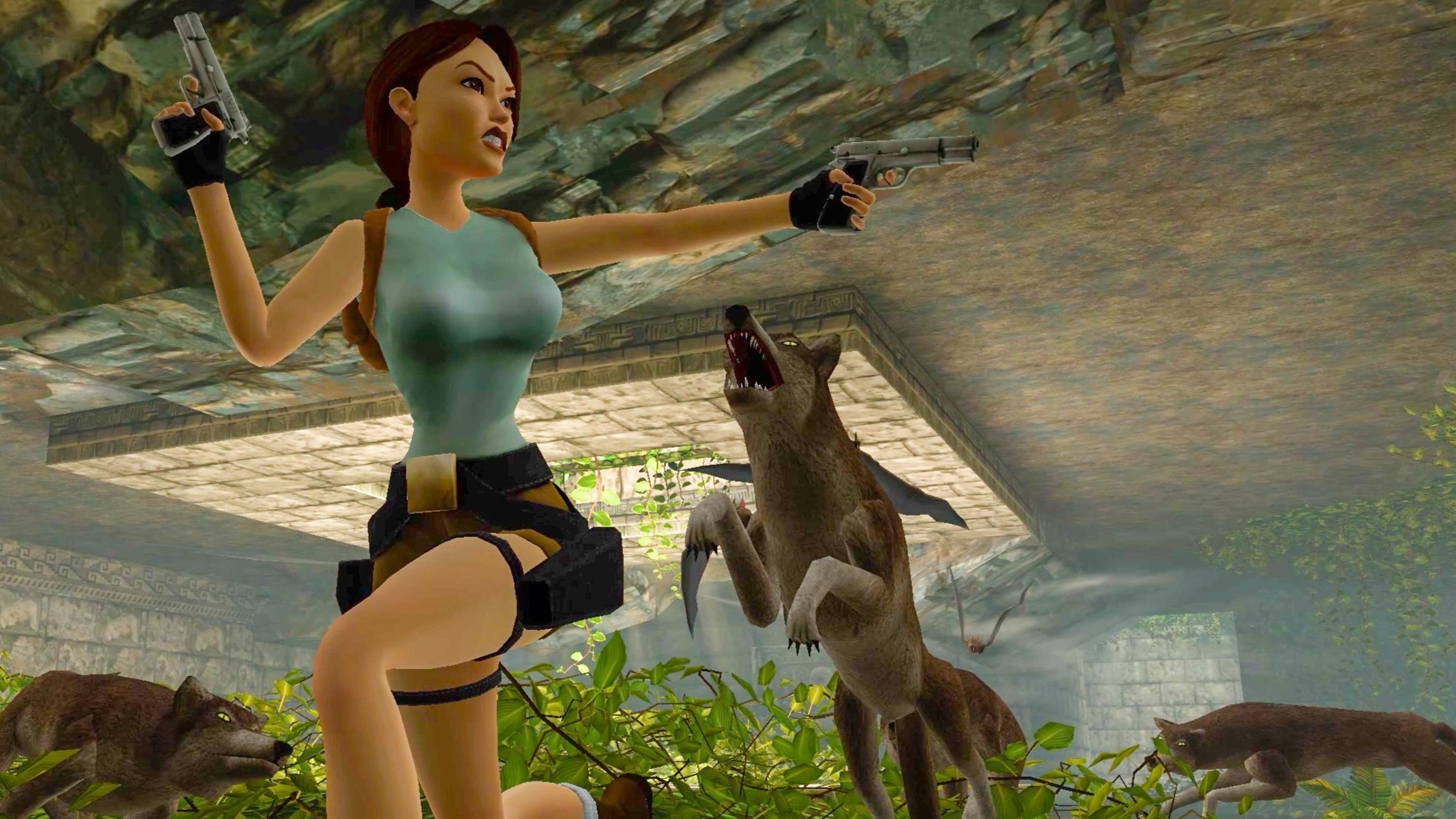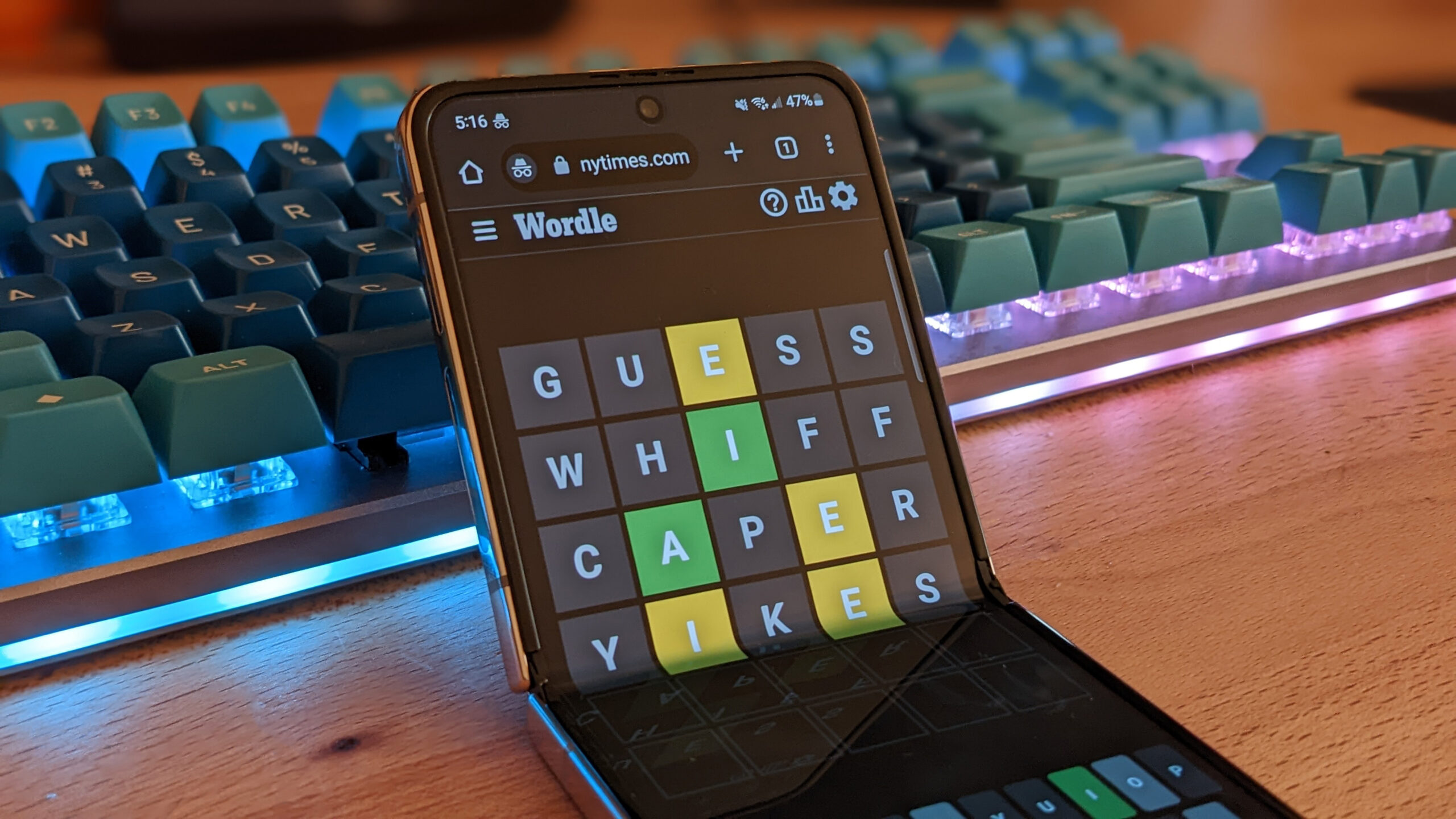Lara Croft may need no introduction, but her first three artefact-swiping, wildlife-bothering, lever-pulling adventures were in real danger of becoming exactly the sort of forgotten relics she hunts for. Tomb Raider Remastered hauls this trio of excellent action-adventure-puzzle hybrids and their original expansions—foundational examples of a style of adventure game we’re still enjoying today—back into action. This is the definitive version of these games, feeling both 25+ years old and also brand new at the same time.
What is it? Three legendary action-adventure games given a loving makeover
Expect to pay £24.99 / $29.99
Developer Aspyr, Crystal Dynamics
Publisher Aspyr
Reviewed on Intel i9-13900HX, GeForce RTX 4080 (laptop), 16GB RAM
Multiplayer? No
Steam Deck Verified
Link: Steam
Tomb Raider Remastered runs fantastically: Whether played on PC or Steam Deck, it scales to whatever my current display’s maximum resolution is without effort or fuss. No matter how long I played or how many times I jumped between games, saves, or hardware, it never did anything other than work exactly as intended.
I was disappointed to find the old graphics options gone, replaced with the ability to read a dry EULA. Aside from a chance to tweak a few basic control/sound settings (both traditional “tank” controls and modern analogue alternatives are available), there’s basically nothing here I can fiddle with. But the ability to swap between old and new graphics was clearly the priority, and it’s implemented very well here.
The framerate didn’t wobble even when I was mashing the game’s dedicated graphics toggle button, seamlessly switching back and forth between the tastefully updated (and default) new look and the classic style, crude 2D keys and all. It works at any moment—the toggle is so comprehensive it applies to every FMV cutscene, as well as menus, menu fonts, and even the static loading screen art.
These little sharp-edged worlds are the perfect place to play out all of my wildest Indiana Jones fantasies. At times they’re as quiet as a tomb, the only sound Lara’s grunts as she carefully picks her way across ancient pillars or shoves a stone block into place. But five minutes later she might be firing her iconic dual pistols at dinosaurs, or desperately running away from a crushing wall covered in spikes. Within the space of half an hour I’ll have acted like a hero, an adventurer, a puzzle-solving genius… and an idiot who might have slightly misjudged that last jump and sent Lara plunging to her doom. Again.
(Image credit: Aspyr)
Tomb Raider Remastered: New and old graphics compared
(Image credit: Aspyr)
Tomb Raider Remastered: New and old graphics compared
(Image credit: Aspyr)
Tomb Raider Remastered: New and old graphics compared
(Image credit: Aspyr)
Tomb Raider Remastered: New and old graphics compared
(Image credit: Aspyr)
Tomb Raider Remastered: New and old graphics compared
(Image credit: Aspyr)
Tomb Raider Remastered: New and old graphics compared
(Image credit: Aspyr)
Tomb Raider Remastered: New and old graphics compared
(Image credit: Aspyr)
Tomb Raider Remastered: New and old graphics compared
(Image credit: Aspyr)
Tomb Raider Remastered: New and old graphics compared
(Image credit: Aspyr)
Tomb Raider Remastered: New and old graphics compared
(Image credit: Aspyr)
Tomb Raider Remastered: New and old graphics compared
(Image credit: Aspyr)
Tomb Raider Remastered: New and old graphics compared
(Image credit: Aspyr)
Tomb Raider Remastered: New and old graphics compared
(Image credit: Aspyr)
Tomb Raider Remastered: New and old graphics compared
Going in I assumed I’d spend most of my time in the retro mode’s comfy familiarity. It’s how these Tomb Raiders “really” look, after all, and I’m a big fan of early 3D in general, especially when it’s handled as well as it is here, the right-angled environments clothed in pin-sharp pixelated textures, the lighting, skyboxes, boxy character models. Even the draw distance is just realistic enough to convey cracked stone, running water, and broken tiles, but still leaves room for my imagination to have a great time filling in the gaps. I was surprised to find I was generally happy to leave the remastered graphics on, and more often than not impressed by the subtle (and not-so-subtle) enhancements that came with them.
On the whole this remaster straddles the line between retro authenticity and shiny modernity shockingly well, the repetitively tiled landscapes instantly recognisable without looking like a complete eyesore on modern screens. New 3D foliage, spider webs, items, light shafts, and other miscellaneous details that were previously either painted onto ground, presented as flat objects, or simply nonexistent are so well integrated it’s easy to believe they were always there.
My retro-loving heart has to admit the game does look better for having them—more organic, more worn.
However, the high resolution of the terrain’s textures combined with their abject flatness, devoid of any of the lumps, bumps, and shading we’re all used to these days, leads to an uncanny valley effect at times, the scenery becoming a bit ‘Lego wallpapered over with a geography professor’s field trip photos.’ The improved lighting and draw distance of the remastered graphics also tend to detract from the first Tomb Raider’s quiet sense of isolation: the famous T-Rex reveal loses some of its impact now that the area’s dressed to look like an outdoor jungle under gloomy skies. It doesn’t hit the same when the dinosaur is walking around the corner of an impossibly lush area somewhere in Peru instead of abruptly emerging from the inky void of an airless nowhere.
28 years old and still utterly terrifying. (Image credit: Aspyr)
The colosseum Lara explores later also suffers, looking more like an abandoned tourist hotspot instead of a crumbling ruin deep within the bowels of the earth. But on the other hand the second game’s polished marble floors and torchlit temples have never looked so opulent, Tomb Raider 3’s shoals of fish darting through tropical waters are more vibrant than the ’90s could ever dream of, and after all these years the cutscenes finally make an honest attempt at conveying emotion. They’re not what I’d call convincing, and I wish they didn’t still do the nodding puppet head bobs when they spoke, but they’re definitely better than they were.
For all the things I’m glad they’ve so very carefully kept—the ability to save/load anywhere, the timeless soundtrack, even the supremely creepy way the gaze of a mummified guardian will silently follow Lara around the room—some things really should have been left in the past. Running water sound effects are on the same short artificial loops with clear beginnings and ends, irritating to the point that some locations are genuinely more enjoyable with the sound muted. The camera is rarely better behaved than it was 25+ years ago, sometimes forcing blind jumps into the unknown because it refuses to sit behind Lara when she’s in a tight corner.
Bosses have far too much health, and that only highlights how basic the gunplay is. The AI across all three games have no answer for highly skilled battle tactics like “Standing still somewhere they can’t reach and holding down the fire button,” “Jumping backwards while shooting,” and “What if I bothered to equip the shotgun.” Worst of all, the trilogy’s depictions of anyone who isn’t a sassy British tomb raider with a fondness for teal tank tops has, at best, aged like milk left out in the midday sun, and at their lowest points are nothing less than racist.
The new 3D models really shine in cutscenes. (Image credit: Aspyr)
Playing through these remasters confirmed that the original trilogy really were as amazing as I remembered them outside those very ’90s flaws. Every puzzle solved felt like a well-earned victory, and the sneaky swerves these games pulled as they plunged Lara into an unseen trap remain exciting challenges. Simply nailing a risky jump (and a manual ledge grab) to avoid certain death is still a rush of adrenaline here, a tension modern adventure games have buffed out.
The remaster’s accuracy does confirm that some parts of these games should have stayed buried, or at least not been uncritically reproduced without some official acknowledgement of their thoughtlessly offensive fumbles. So—same as always—this collection is the very best, and very worst, of Lara Croft’s adventures.











